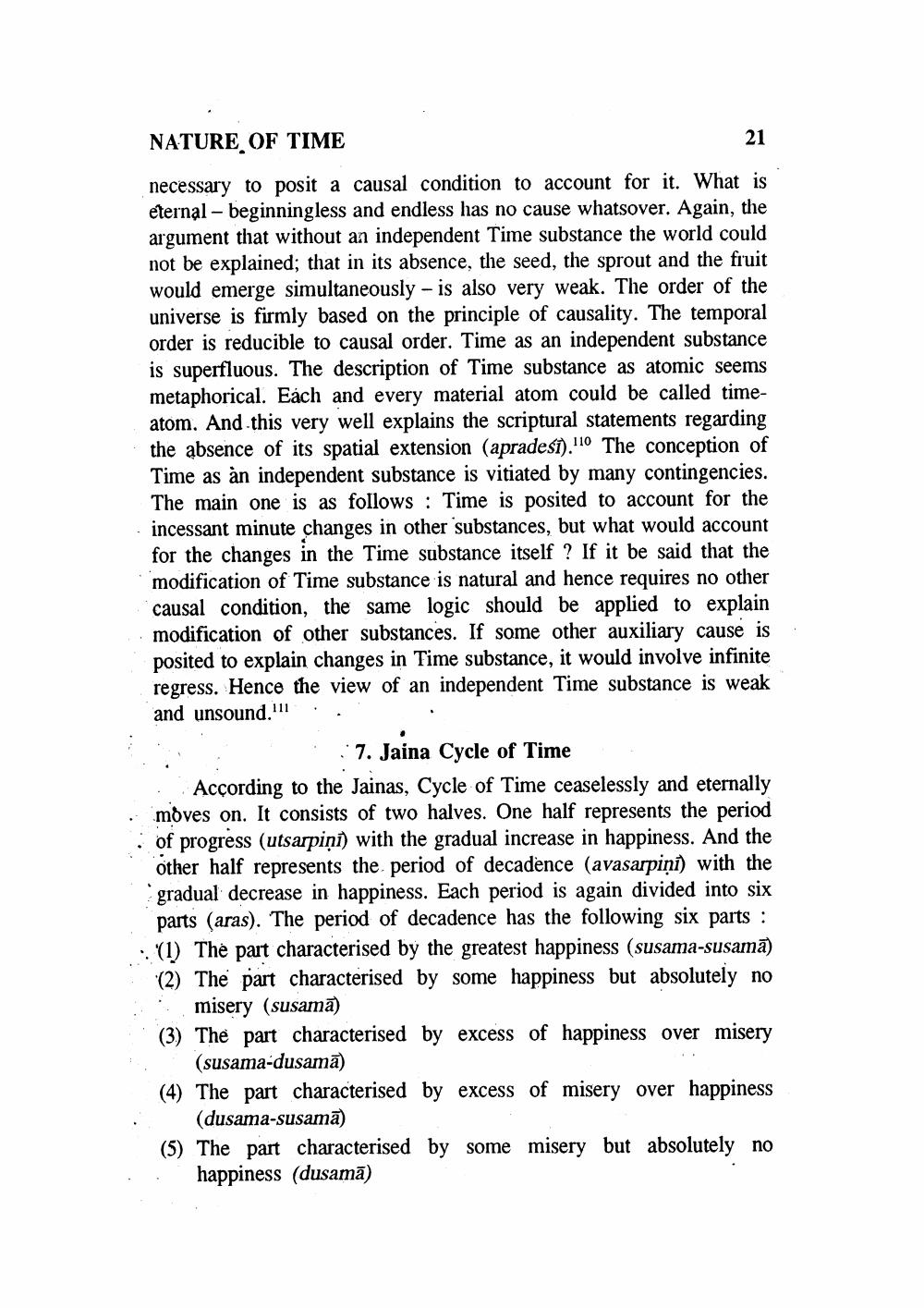________________
NATURE OF TIME necessary to posit a causal condition to account for it. What is eternal - beginningless and endless has no cause whatsover. Again, the argument that without an independent Time substance the world could not be explained; that in its absence, the seed, the sprout and the fruit would emerge simultaneously - is also very weak. The order of the universe is firmly based on the principle of causality. The temporal order is reducible to causal order. Time as an independent substance is superfluous. The description of Time substance as atomic seems metaphorical. Each and every material atom could be called timeatom. And this very well explains the scriptural statements regarding the absence of its spatial extension (apradesi).'10 The conception of Time as an independent substance is vitiated by many contingencies. The main one is as follows: Time is posited to account for the incessant minute changes in other substances, but what would account for the changes in the Time substance itself ? If it be said that the modification of Time substance is natural and hence requires no other causal condition, the same logic should be applied to explain modification of other substances. If some other auxiliary cause is posited to explain changes in Time substance, it would involve infinite regress. Hence the view of an independent Time substance is weak and unsound.111 . .
:7. Jaina Cycle of Time According to the Jainas, Cycle of Time ceaselessly and eternally moves on. It consists of two halves. One half represents the period i of progress (utsarpiņi) with the gradual increase in happiness. And the
other half represents the period of decadence (avasarpiņi) with the gradual decrease in happiness. Each period is again divided into six
parts (aras). The period of decadence has the following six parts : - (1) The part characterised by the greatest happiness (susama-susamā) (2) The part characterised by some happiness but absolutely no
misery (susamā) (3) The part characterised by excess of happiness over misery
(susama-dusamā) (4) The part characterised by excess of misery over happiness
(dusama-susamā) (5) The part characterised by some misery but absolutely no
happiness (dusamā)




